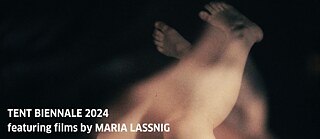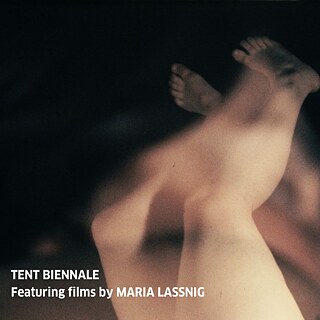TENT Biennale 2024
Film festival | A Pioneering International Festival for Experimental Films and New Media Art
-
B-CAF Bridging Culture and Arts Foundation, Kolkata

Goethe-Institut Kolkata joins hands with TENT Kolkata to present restored and rare films of the Austrian artist MARIA LASSNIG on 20 December from 2:00 pm at the biennale.
TENT KOLKATA
TENT Kolkata, an independent and alternative art platform, was initiated by leading artists, filmmakers, and scholars in India, in 2012. It is a space for critical thinking; TENT acts as a bridge between theory and practice, research and doing-art. LITTLE CINEMA INTERNATIONAL FESTIVAL for experimental films and new media art, was launched in 2014 which is an important independent festival of experimental films and art in Eastern India. After five editions, in 2019, the festival was reimagined as TENT BIENNALE to build persuasive links between researchers, artists and filmmakers, and rethink practice as praxis.MARIA LASSNIG
Born in Carinthia in Southern Austria in 1919, Maria Lassnig’s (1919 – 2014) work is based on the observation of the physical presence of the body and what she termed ‘body awareness’, or ‘Körpergefühl’ in German. She studied at the Academy of Fine Arts in Vienna in the midst of the Second World War. Then, in post-war Europe, she quickly moved away from the state-approved academic realism in which she was trained, looking to Austria’s own avant-garde past, such as the coloration of Oskar Kokoschka and Egon Schiele’s expressionist treatment of figuration.Of her artistic process, Lassnig has said: ‘I step in front of the canvas naked, as it were. I have no set purpose, plan, model or photography. I let things happen. But I do have a starting-point, which has come from my realization that the only true reality are my feelings, played out within the confines of my body. They are physiological sensations: a feeling of pressure when I sit or lie down, feelings of tension and senses of spatial extent. These things are quite hard to depict.’
In 1980, Lassnig was awarded a professorship—with a focus on painting and animation film—at the University of Applied Arts in Vienna.
Location
Flat GB, Building – 176/14/163, Regent Apartment
Regent Estate. Raipur Road, Bijoygarh
Kolkata 700092
India
Location
Flat GB, Building – 176/14/163, Regent Apartment
Regent Estate. Raipur Road, Bijoygarh
Kolkata 700092
India
